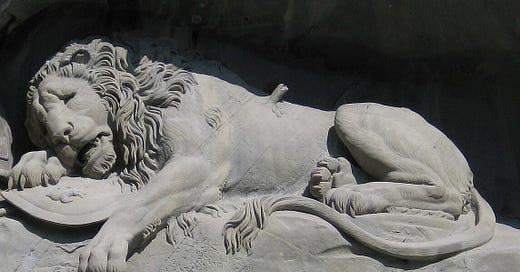The first time I passed by Syria, I was amused by the unending stream of billboards, posters, signs, depicting Bashar Al-Assad. What kind of country was this, where a total cult of personality was visible at all times. But Syria was a beautiful country. Its capital city was a real gem.
It was a modern, bustling town where one could walk past 2000 year old columns, while on your way to an affordable hotel set in an old and beautiful Damascene house, the likes of which few Westerners could ever suspect.
By all accounts, Bashar Al-Assad was a brutal man. He ruled with an iron fist, and exerted a sort of terror amongst the notables of many neighboring countries who dreaded being summoned to — or banned from — Damascus.
But he had never wanted this. In reality, it was his brother Bassel who was destined to rule. A carbon copy of his father, with the looks and character. An alpha. As it often is with such men, Bassel would meet his end while speeding through the streets of Damascus on his way to a ski trip.
Majd was not well, and Maher was not fit for rule. Bashar was therefore recalled from his ophthalmology postgraduate studies in London to be groomed to succeed the feared Hafez Al-Assad.
What a journey! Some of us remember when the entire map of Syria was painted black with the banner of ISIS. A whopping 70% of the country was out of reach to government forces. Notables from Gulf royal families offered his wife Asma Al-Assad refuge in their countries. But Bashar Al-Assad stood still, and began the long road. He refused to let his country fall to fanatics.
In so doing he risked his own life, that of his family. He made enemies out of the United States and its coalition forces, Gulf countries, and opportunistic ethnic factions trying to carve their own piece of Syria.
Assad kept the peace. He protected his own Alawites in the coastal regions, an ancient and mysterious land where Nizari Ismailis once dwelt. But he also guaranteed the rights of Christians, Shias, Sunnis, and all others who formed the whole of Syria under his stewardship.
But this world is not one for such men. The conditions for their appearance are dire, and when there is but an ember the winds of fury come out to extinguish it. A decade of trade sanctions, the need to play off a multitude of factions with dubious loyalties against each other, the drain of the best human capital out of the country: options ran out.
And yet, he managed to keep a voluntary military service going (for all it was worth) for years and keep Syrian territory relatively war free in the last years. In truth, most people would not visit Syria due to fear of being questioned at some airport rather than any safety concerns.
We should always remember the good in men. Bashar Al-Assad would have had a far better ending if he had perished in that plane off Homs. Speculations would have arisen, the mystery of his demise would have continued. He would have died in Syria, where he was born, as he used to say.
Now Bashar Al-Assad will be a mere mortal, back to his real passion of ophthalmology. A far better fate than many in his position, and a much more dignified one than offering his body to a bunch of savages. But nevertheless, this is so meek, so small. A man like him is supposed to inspire others, and such an end can only provoke despair in the hearts of those who were emboldened by his example.
I choose to remember the Lion of Damascus.





Beautiful.